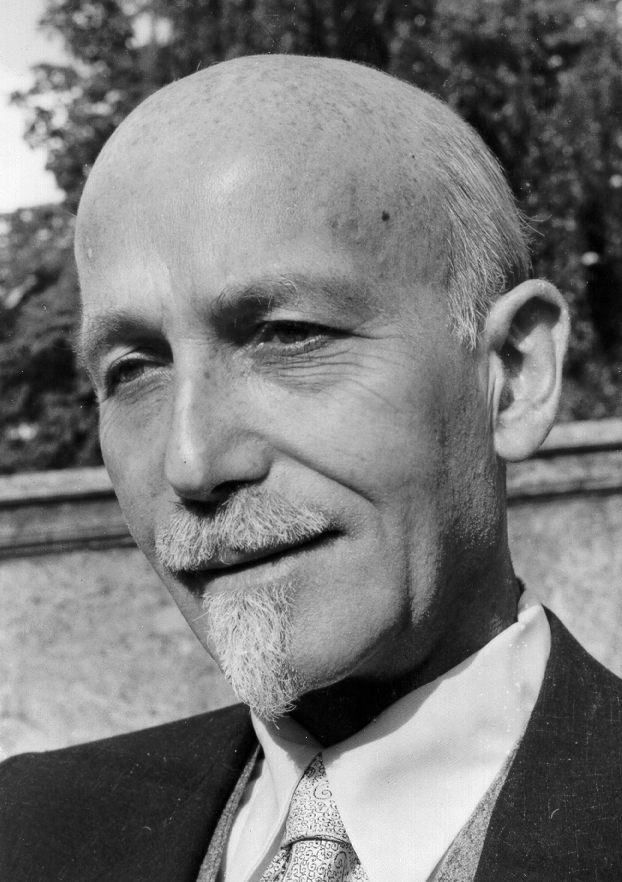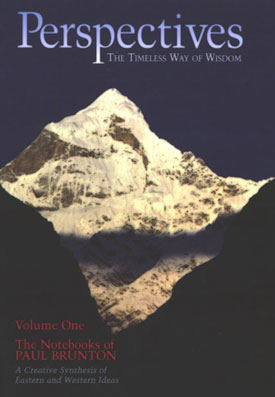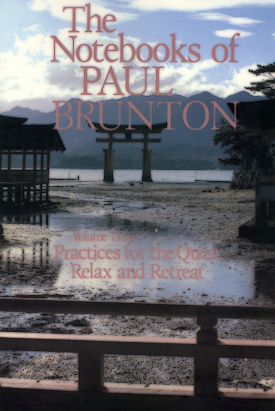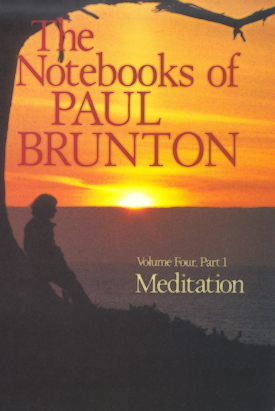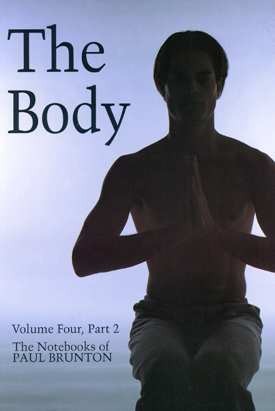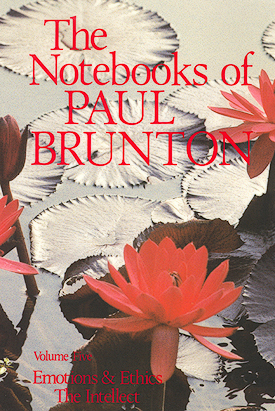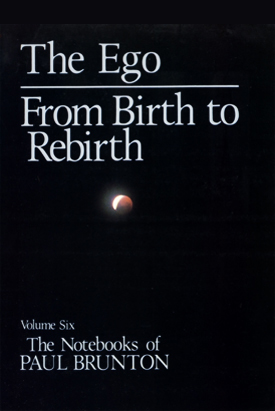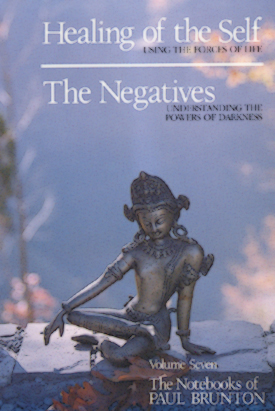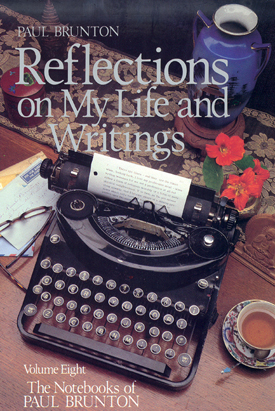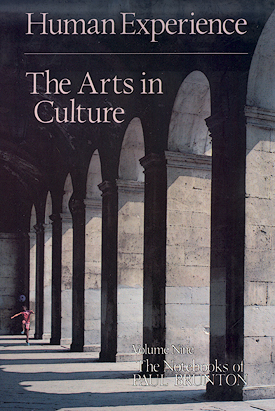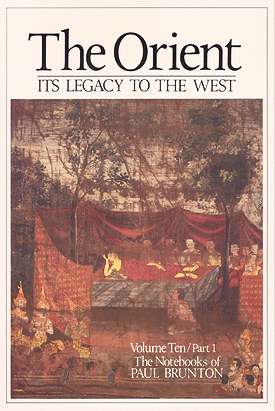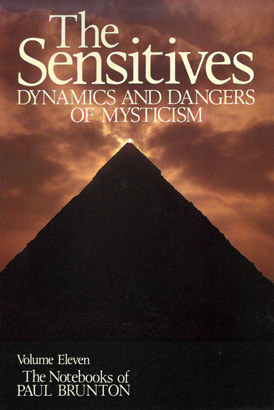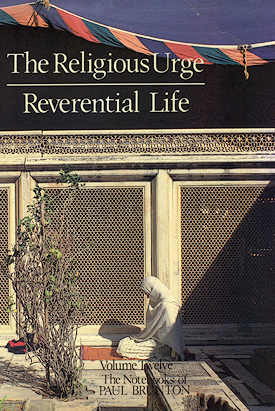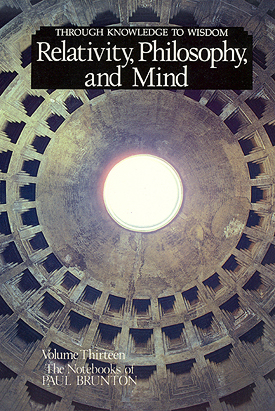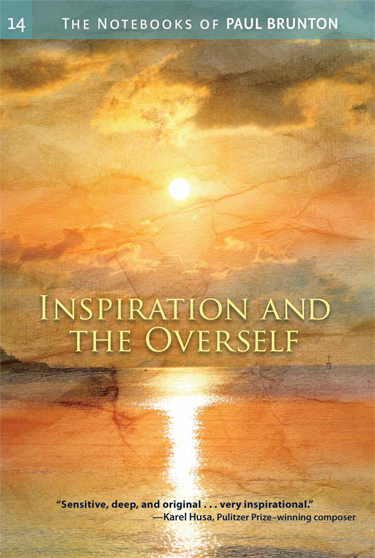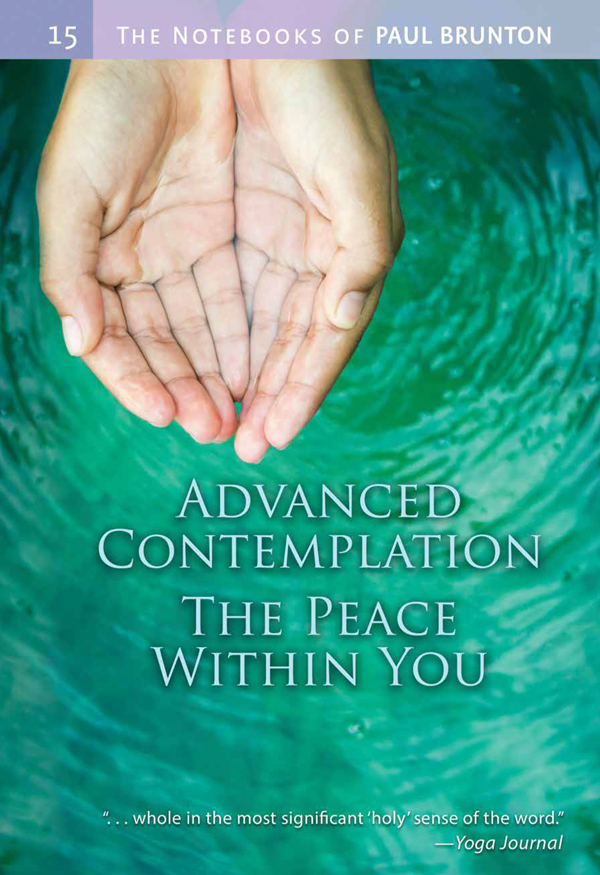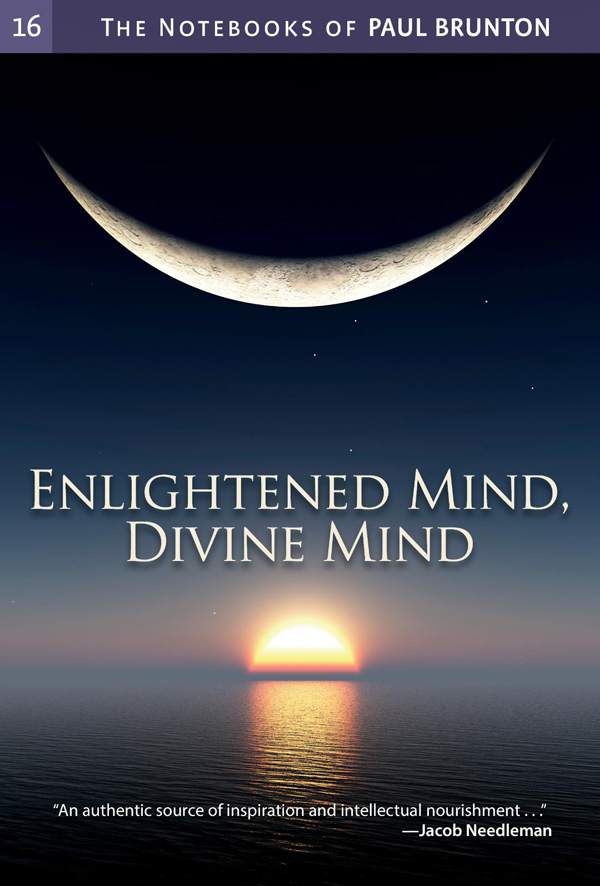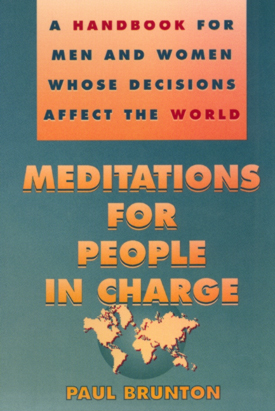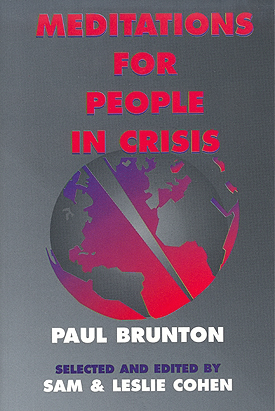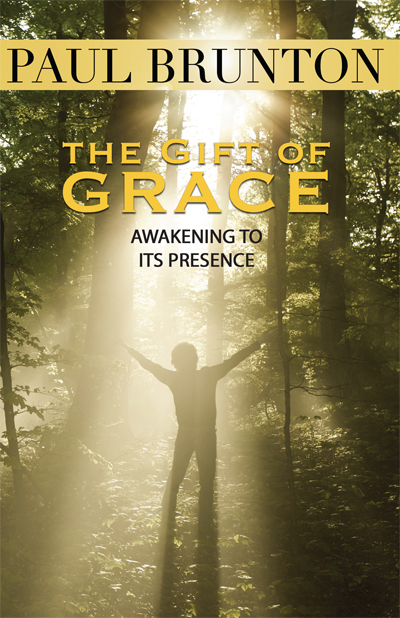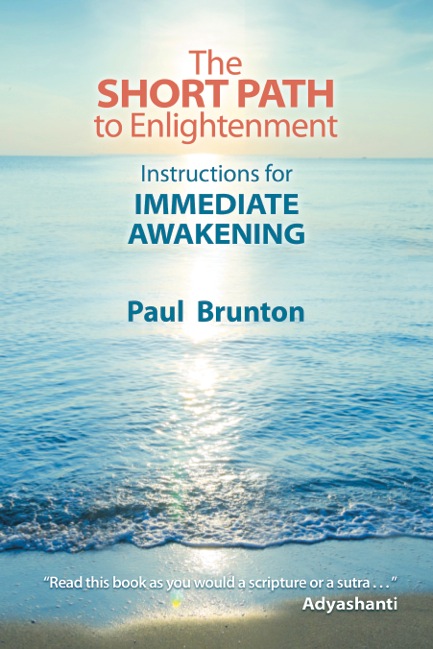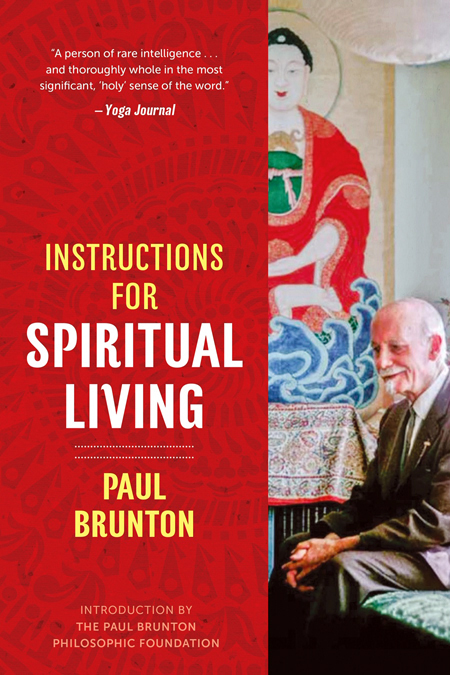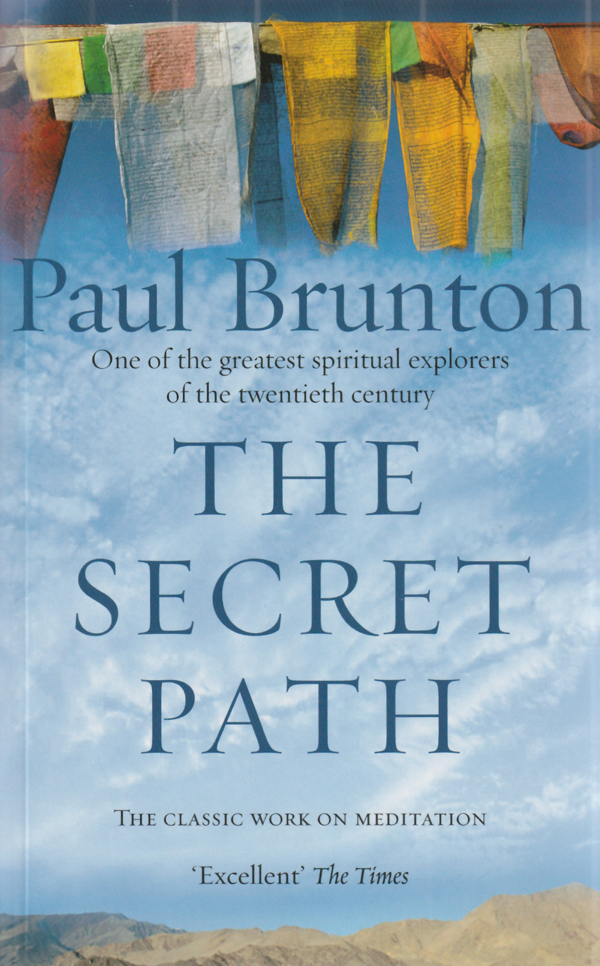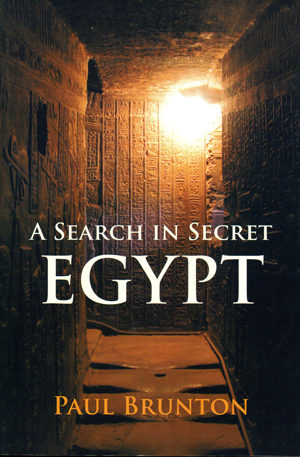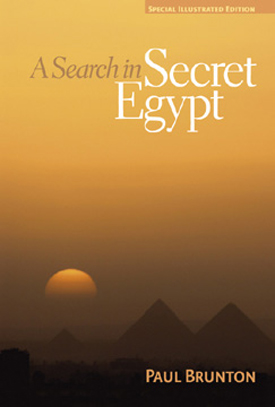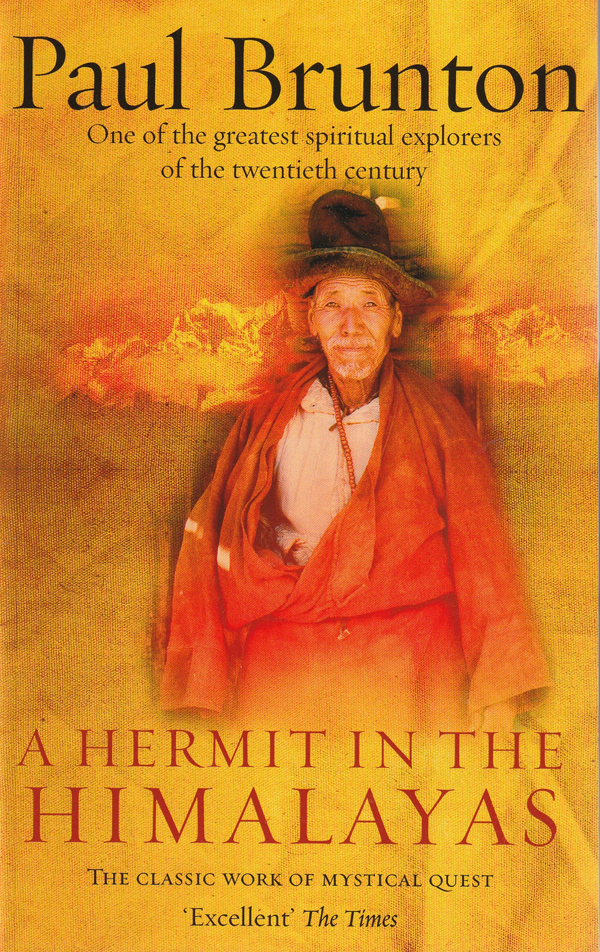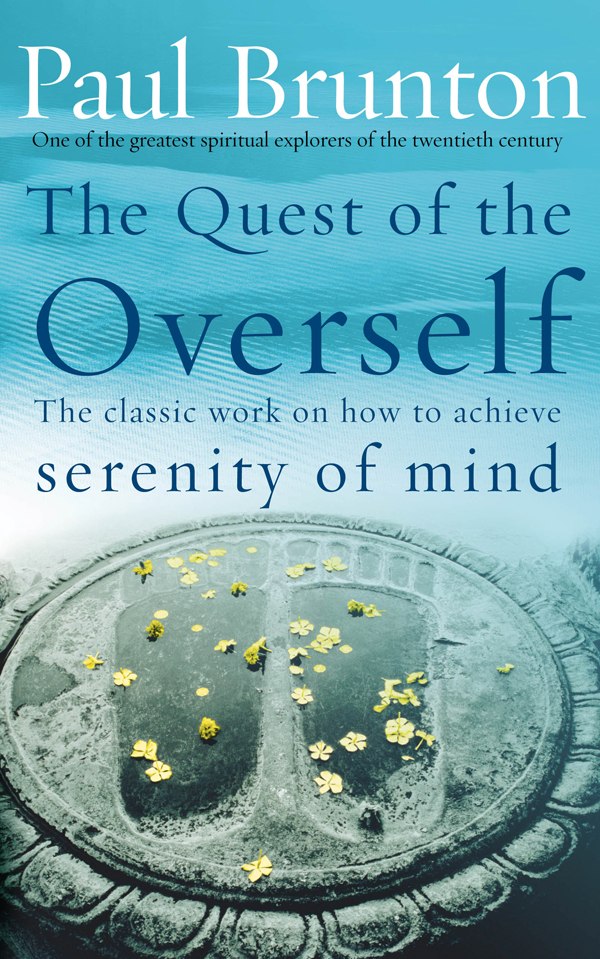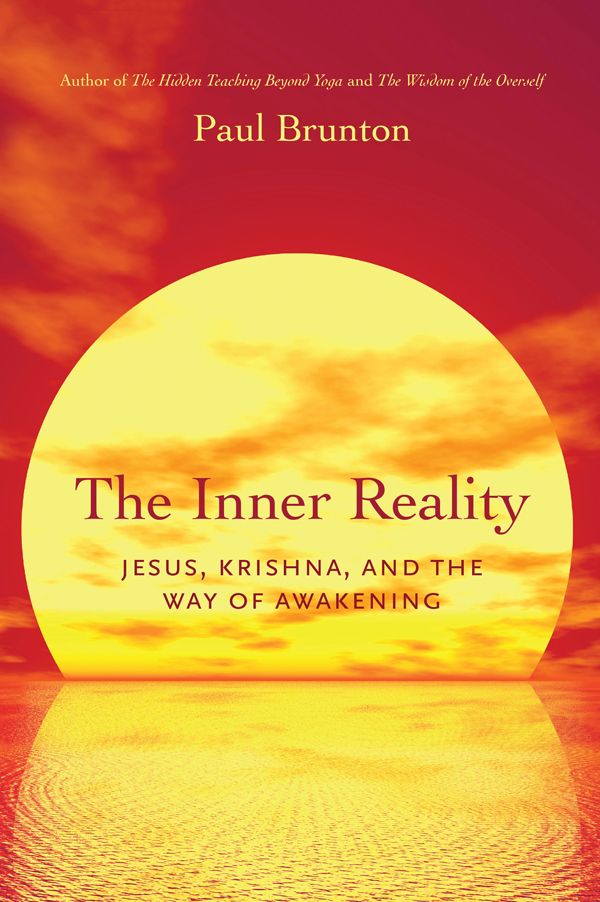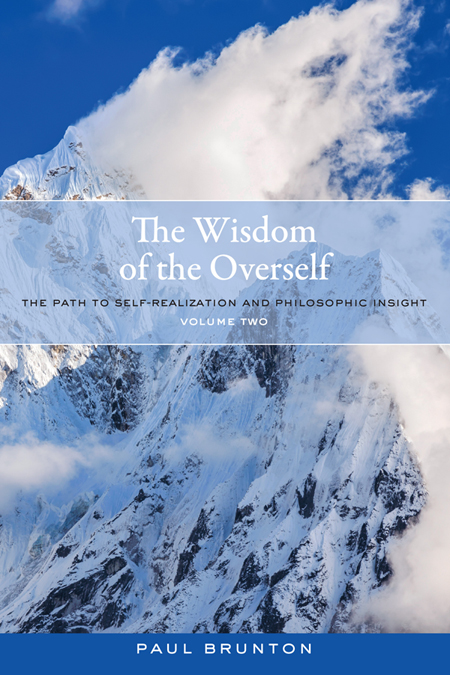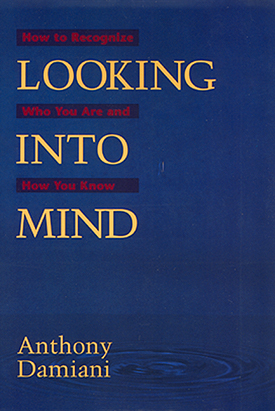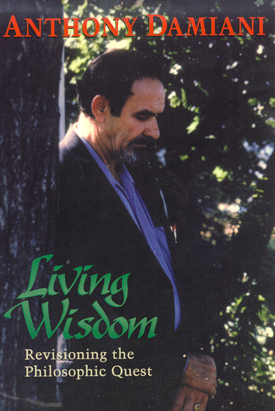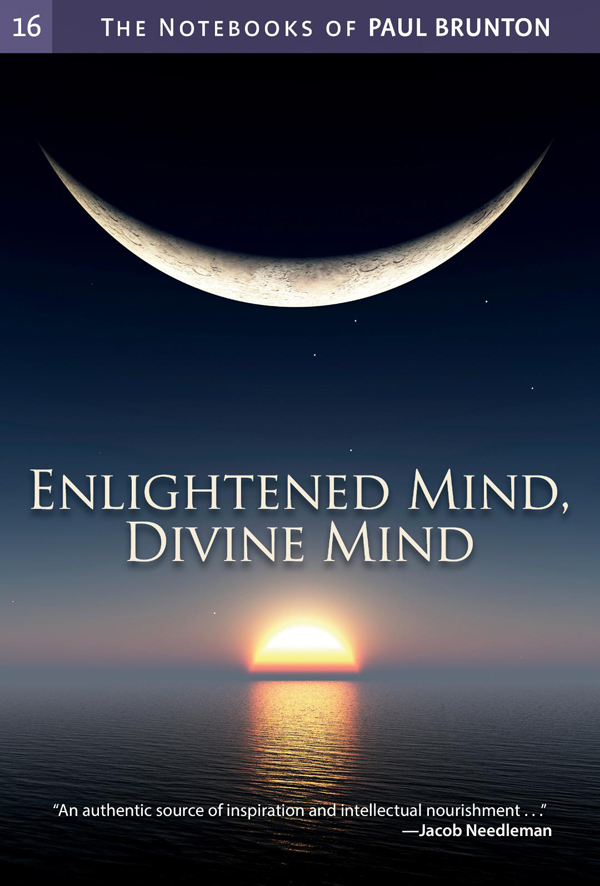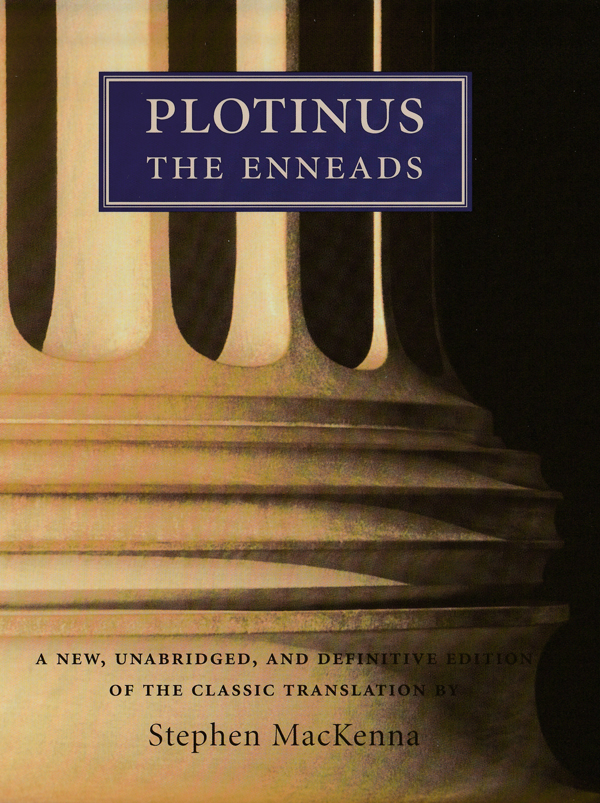The Notebooks of Paul Brunton volume 16 hardcover
Enlightened Mind, Divine Mind By Paul Brunton
.jpg)
Retail/cover price: $42.50
Our price : $34.00
(You save $8.50!)
About this book:
The Notebooks of Paul Brunton volume 16 hardcover
Enlightened Mind, Divine Mind
by Paul Brunton
A definitive account of "enlightenment" and the principles that underlie it, carefully distinguishing inspired-human and divine identity. Is it "union with God" or . . .
Subjects: Philosophy, Spirituality
5.75 x 8.5, hardcover
(softcover is available)
480 pages
ISBN 10: 0-943914-44-2
ISBN 13: 978-0-943914-44-2
Book Details
"The God in the sun is the 'I' in me — this, put tersely, is the essence of man's relationship to divinity. A whole book may be needed to explain it, a whole lifetime to get direct experience of its truth as insight."
"We may dwell in inner mystical fellowship with God but we may not become as God. Those who proclaim false self-deification needlessly make a grotesquely exaggerated statement of what is already by itself a sufficiently tremendous truth."
—Paul Brunton
This volume offers a strong treatment of what enlightenment is and is not, and of the principles that underlie its arisal. Examining claims of "union with God," it addresses forcefully the fallacy of equating even the highest degree of individual human illumination with the universal intelligence in which individual realization is rooted. P.B. carefully distinguishes stages of enlightenment in the spiritual hierarchy of mystics, saints, messengers, prophets, sages, and avatars.
Please see the softcover edition pages for table of contents, introduction, reviews, and other related information.
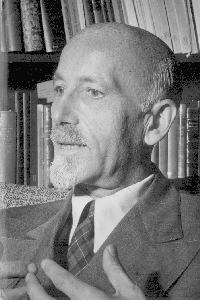
Paul Brunton helps us hear the melody behind the medley of today's "spiritual marketplace." His late writings raise the bar for what we can expect of spiritual teachings and teachers, and what we can do for ourselves. Born in London in 1898, he soon became a leading pioneer of much of what we now take for granted. He traveled widely throughout the world (long before it was fashionable) to meet living masters of various traditions with whom he then lived and studied. His eleven early books from 1934–1952 shared much of what he learned, and helped set the stage for dramatic east-west exchanges of the late 20th century. Paul Brunton left more than 10,000 pages of enormously helpful new work in notebooks he reserved for posthumous publication, much of which is now available as The Notebooks of Paul Brunton. See "The Complete Paul Brunton Opus" in blue below to see his many works available on this site. You can also search on Paul Brunton in the search bar to browse the selections, or click on a link below for specific connections.
Click here for an article about Paul Brunton.
Click here for The Notebooks of Paul Brunton.
To access small theme-based books compiled from Paul Brunton's writings, scroll down to Derived from the Notebooks below.
To access Paul Brunton's early writings, published from 1934–1952, scroll down to Paul Brunton's Early Works below.
To access commentaries on Paul Brunton and his work by his leading student, Anthony Damiani, as well as other writings about Paul Brunton and/or his work, scroll down to Commentaries and Reflections on Paul Brunton and His Work below.
Book Details
"The God in the sun is the 'I' in me — this, put tersely, is the essence of man's relationship to divinity. A whole book may be needed to explain it, a whole lifetime to get direct experience of its truth as insight."
"We may dwell in inner mystical fellowship with God but we may not become as God. Those who proclaim false self-deification needlessly make a grotesquely exaggerated statement of what is already by itself a sufficiently tremendous truth."
—Paul Brunton
This volume offers a strong treatment of what enlightenment is and is not, and of the principles that underlie its arisal. Examining claims of "union with God," it addresses forcefully the fallacy of equating even the highest degree of individual human illumination with the universal intelligence in which individual realization is rooted. P.B. carefully distinguishes stages of enlightenment in the spiritual hierarchy of mystics, saints, messengers, prophets, sages, and avatars.
Please see the softcover edition pages for table of contents, introduction, reviews, and other related information.
About Paul Brunton

Paul Brunton helps us hear the melody behind the medley of today's "spiritual marketplace." His late writings raise the bar for what we can expect of spiritual teachings and teachers, and what we can do for ourselves. Born in London in 1898, he soon became a leading pioneer of much of what we now take for granted. He traveled widely throughout the world (long before it was fashionable) to meet living masters of various traditions with whom he then lived and studied. His eleven early books from 1934–1952 shared much of what he learned, and helped set the stage for dramatic east-west exchanges of the late 20th century. Paul Brunton left more than 10,000 pages of enormously helpful new work in notebooks he reserved for posthumous publication, much of which is now available as The Notebooks of Paul Brunton. See "The Complete Paul Brunton Opus" in blue below to see his many works available on this site. You can also search on Paul Brunton in the search bar to browse the selections, or click on a link below for specific connections.
Click here for an article about Paul Brunton.
Click here for The Notebooks of Paul Brunton.
To access small theme-based books compiled from Paul Brunton's writings, scroll down to Derived from the Notebooks below.
To access Paul Brunton's early writings, published from 1934–1952, scroll down to Paul Brunton's Early Works below.
To access commentaries on Paul Brunton and his work by his leading student, Anthony Damiani, as well as other writings about Paul Brunton and/or his work, scroll down to Commentaries and Reflections on Paul Brunton and His Work below.
The Complete Paul Brunton Opus:
Paul Brunton's most mature work, in the order he specified for posthumous publication.
Smaller books on popular/timely themes, developed from the Notebooks and published posthumously.
Paul Brunton's works published during his lifetime from 1934-1952
Commentaries/Reflections by other authors on Paul Brunton or his works.

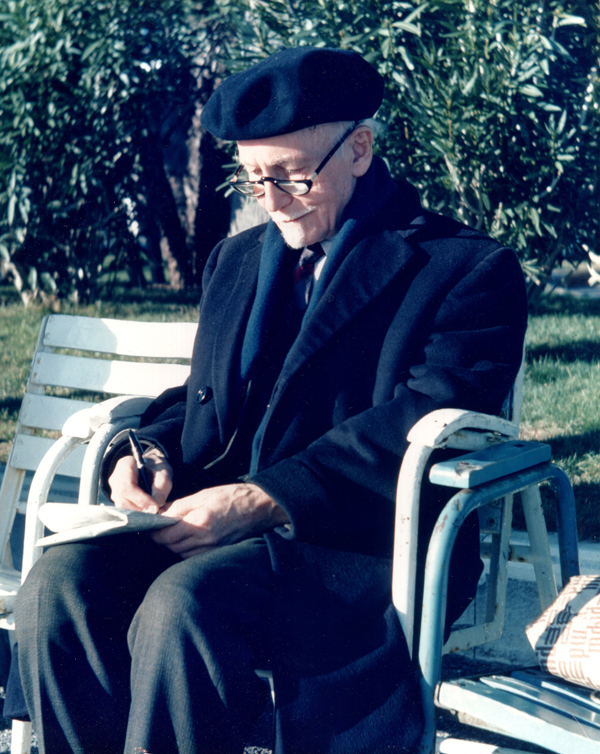
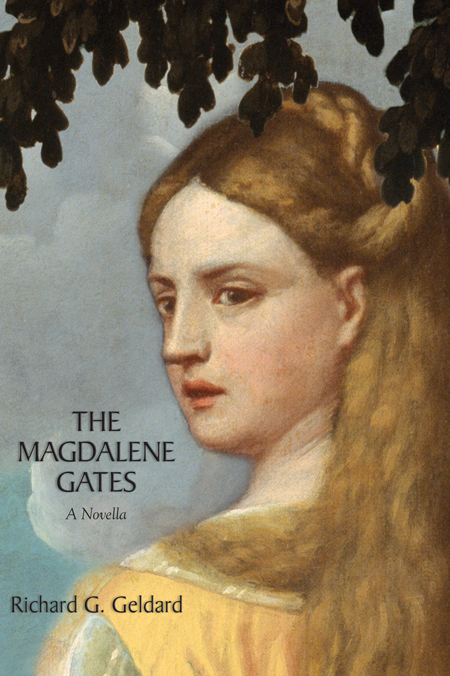
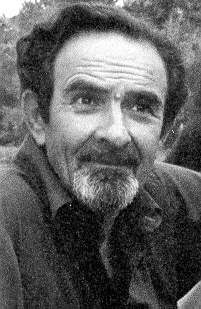




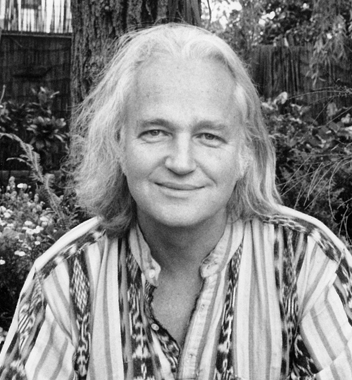
.jpg)
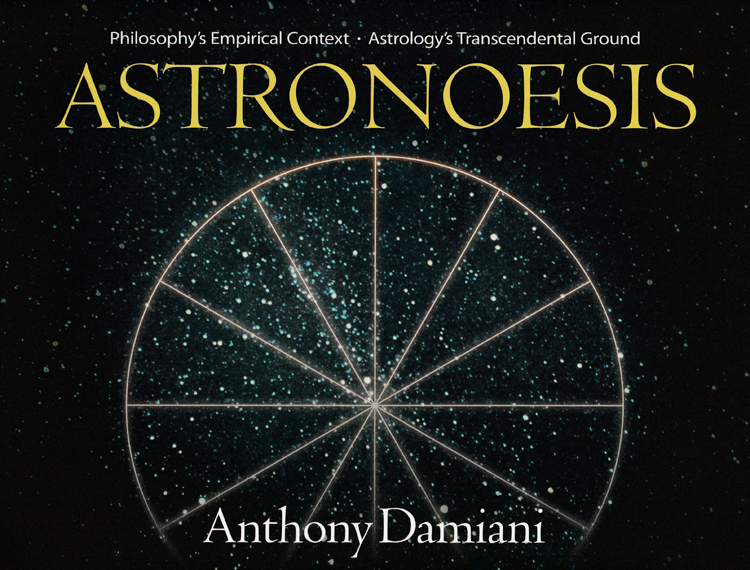
.jpg)
.jpg)
.jpg)
.jpg)
.jpg)
.jpg)
.jpg)
.jpg)
.jpg)
.jpg)
